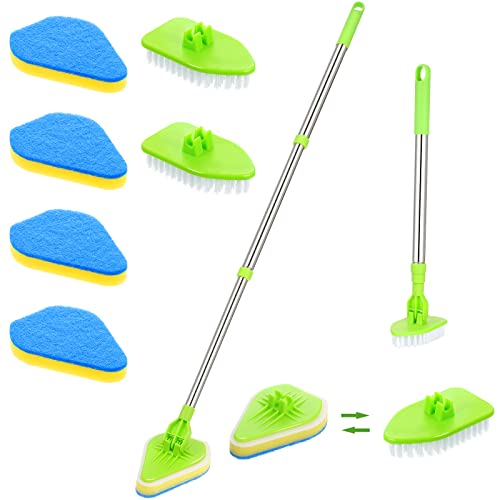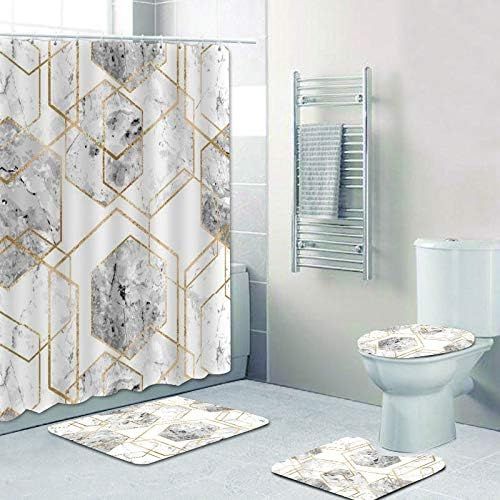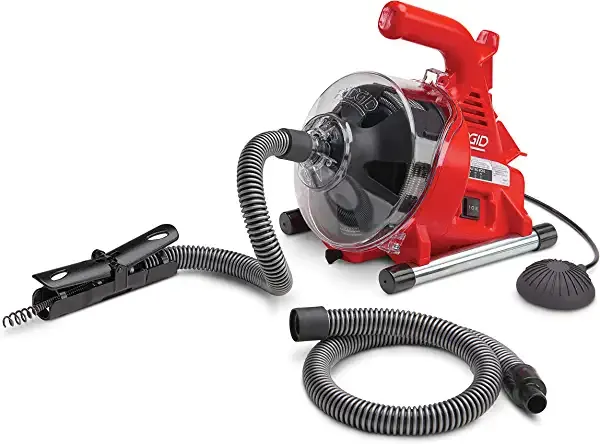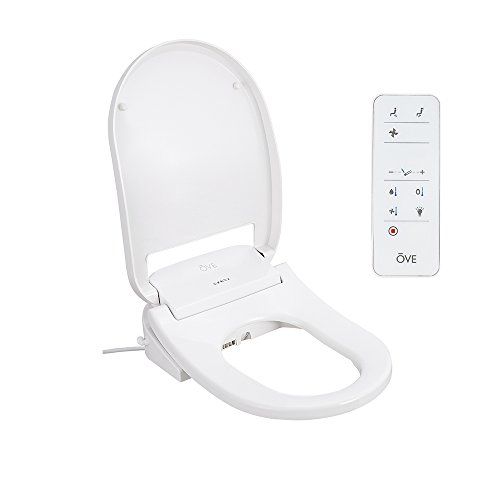Can You Use Bathroom Cleaner In The Kitchen
Are you wondering if it’s safe to use bathroom cleaner in your kitchen? Well, you’ve come to the right place for answers. In this article, we’ll dive into the differences between bathroom and kitchen cleaners, assess the safety of using bathroom cleaners in the kitchen, and evaluate the ingredients in these cleaners.
We’ll also explore the potential risks of using bathroom cleaner in the kitchen and provide alternatives for kitchen cleaning. With our expert advice, you’ll learn the importance of using proper cleaning products in each area of your home. So, whether you’re looking to keep your kitchen clean and safe or simply want to make informed choices for your home cleaning, this article will provide you with the information you need.
Key Takeaways
- Using bathroom cleaners in the kitchen is not recommended as they may not be suitable for cutting through kitchen grease and may not effectively sanitize food preparation areas.
- Experts recommend using cleaning products specifically made for the kitchen to ensure a clean and healthy living environment.
- Bathroom cleaners are formulated for bathroom surfaces and may contain ingredients unsuitable for food preparation areas.
- Kitchen-specific cleaners, such as degreasers and sanitizers, are more appropriate as they help remove grease, grime, and bacteria effectively without leaving harmful residues behind.
Understanding the Differences Between Bathroom and Kitchen Cleaners
You can’t use bathroom cleaner in the kitchen because it’s specifically designed for different surfaces and purposes. Bathroom cleaners are formulated to tackle tough soap scum, mineral deposits, and mold and mildew stains commonly found in the bathroom. They contain ingredients that are effective for these specific tasks but may be too harsh for kitchen surfaces.
Kitchen cleaners, on the other hand, are designed to cut through grease, grime, and food stains that are common in cooking areas. They are gentle enough to use on a variety of surfaces, such as countertops, appliances, and cookware.
Assessing the effectiveness of a cleaner in its intended environment is crucial to achieving optimal cleaning results. Understanding the usage and limitations of different cleaners will help you maintain a clean and safe kitchen environment.
Assessing the Safety of Bathroom Cleaners in the Kitchen
When it comes to keeping your kitchen clean and safe, it’s important to consider the compatibility of certain cleaning products. While bathroom cleaners may be effective in removing dirt and grime, they may not be suitable for use in the kitchen.
Bathroom cleaners are specifically formulated to tackle soap scum, mold, and mildew, which are common issues in bathrooms. However, these cleaners may contain harsh chemicals that could be harmful if they come into contact with food preparation surfaces or utensils in the kitchen.
Additionally, bathroom cleaners may not be as effective in removing grease and food stains in the kitchen compared to specialized kitchen cleaners. It’s always best to use cleaning products that are specifically designed for the kitchen, as they are formulated to be safe and effective for use in this area.
Plus, comparing prices of kitchen cleaners can help you find an affordable option that meets your cleaning needs.
Evaluating the Ingredients in Bathroom Cleaners
To truly understand the safety of bathroom cleaners, it’s crucial to examine the ingredients they contain and how they may interact with different surfaces and substances. Evaluating the effectiveness of bathroom cleaners involves looking at the active ingredients they contain.
Some common ingredients include bleach, ammonia, and hydrogen peroxide. These ingredients are effective at killing germs and removing stains, but they can also be harsh and corrosive.
When used in the kitchen, bathroom cleaners may interact with food and food preparation surfaces, potentially leaving behind harmful residues. Additionally, evaluating the environmental impact of bathroom cleaners is important.
Some ingredients, such as phosphates and chlorine, can be harmful to aquatic life and contribute to water pollution. Considering these factors can help you make informed decisions about using bathroom cleaners in the kitchen.
Potential Risks of Using Bathroom Cleaner in the Kitchen
Using bathroom cleaner in the kitchen poses potential risks due to the harsh and corrosive nature of its ingredients, which can leave behind harmful residues on food and food preparation surfaces. These residues can contaminate the kitchen environment and may lead to health issues if ingested. It is essential to understand the potential risks and take necessary precautions to ensure the safety of yourself and your family.
Here are some precautions to consider when using bathroom cleaner in the kitchen:
- Never use bathroom cleaner directly on food or food preparation surfaces.
- Thoroughly rinse all surfaces with water after using bathroom cleaner.
- Use separate cleaning tools for the bathroom and kitchen to prevent cross-contamination.
- Read and follow the manufacturer’s instructions for proper usage and safety precautions.
- Consider using kitchen-specific cleaners that are designed to be safe for food contact surfaces.
By following these precautions, you can minimize the risks associated with using bathroom cleaner in the kitchen and maintain a clean and safe environment for cooking and food preparation.
Alternatives to Bathroom Cleaner for Kitchen Cleaning
Consider exploring alternative cleaning products that are specifically formulated for kitchen use, as they can provide effective results without the potential risks associated with using bathroom cleaner in food preparation areas. Here are five alternatives to bathroom cleaner that are effective for kitchen cleaning:
-
All-purpose kitchen cleaner: This versatile cleaner is designed to tackle a variety of kitchen messes, including grease and grime.
-
Vinegar solution: A mixture of vinegar and water can effectively clean countertops, appliances, and even remove stubborn stains.
-
Baking soda paste: Mix baking soda with water to create a paste that can be used to scrub away tough stains on sinks, stovetops, and cutting boards.
-
Lemon juice: The natural acidity of lemon juice makes it a great alternative for cutting through grease and removing odors.
-
Hydrogen peroxide: This powerful disinfectant can be used to sanitize countertops, cutting boards, and other kitchen surfaces.
By using these alternatives, you can effectively clean your kitchen without the potential risks associated with using bathroom cleaner.
Tips for Keeping Your Kitchen Clean and Safe
Keep your kitchen sparkling clean and ensure the safety of your food prep areas by following these helpful tips.
To maintain a pristine kitchen, it’s essential to use effective cleaning methods. Start by wiping down surfaces regularly with a mixture of warm water and dish soap. This will help remove grease and grime. Additionally, using a disinfectant spray or wipes specifically designed for kitchen use can help eliminate bacteria and prevent cross-contamination.
Avoid common kitchen cleaning mistakes such as neglecting to clean your kitchen sink regularly. It’s a breeding ground for bacteria, so scrub it with a mixture of baking soda and vinegar weekly. Another mistake is using the same sponge or cloth for different areas of your kitchen. This can spread germs, so be sure to use separate cleaning tools for different surfaces.
By following these tips, you can maintain a clean and safe kitchen environment for you and your family.
Importance of Using Proper Cleaning Products in Each Area of Your Home
Make sure to prioritize the safety of your loved ones by using the proper cleaning products in every area of your home, ensuring a healthy and germ-free environment. It is important to understand that each area of your home requires different cleaning techniques and products for effective results. Assessing the effectiveness of a cleaning product is crucial to ensure that it is suitable for the specific area you are cleaning. For example, using bathroom cleaner in the kitchen may not be the best choice as it may contain harsh chemicals that are not safe for food preparation surfaces. To help you make informed decisions, here is a table that outlines recommended cleaning products for different areas of your home:
| Area | Recommended Cleaning Products |
|---|---|
| Kitchen | All-purpose cleaner, degreaser |
| Bathroom | Disinfectant, bathroom cleaner |
| Living room | Dusting spray, upholstery cleaner |
| Bedroom | Fabric freshener, carpet cleaner |
| Outdoor areas | Outdoor cleaner, mold and mildew remover |
By using the appropriate cleaning products for each area, you can ensure a clean and safe environment for your family.
Expert Advice on Cleaning Products for the Kitchen
Now that you understand the importance of using proper cleaning products in each area of your home, let’s focus on the kitchen. Expert opinions and best practices can help you effectively clean this high-traffic area.
When it comes to cleaning products for the kitchen, it’s essential to choose ones specifically designed for that purpose. Kitchen cleaners are formulated to remove grease, grime, and food residue effectively. They often contain degreasers, antibacterial agents, and other ingredients that tackle the unique challenges found in the kitchen.
Using bathroom cleaners in the kitchen is not recommended, as they may not be suitable for cutting through kitchen grease or sanitizing food preparation areas.
To maintain a clean and safe kitchen, follow expert advice and invest in cleaning products specifically made for this area of your home.
Conclusion: Making Informed Choices for Your Home Cleaning
In conclusion, by selecting the appropriate cleaning products for each area of your home, you can ensure a clean and healthy living environment. Making informed choices about the cleaning products you use is crucial for maintaining a safe and sanitary kitchen.
Using bathroom cleaner in the kitchen may not be the best choice as it’s specifically formulated for bathroom surfaces and may contain ingredients that aren’t suitable for food preparation areas. Opting for kitchen-specific cleaners, such as degreasers and sanitizers, can help remove grease, grime, and bacteria effectively without leaving harmful residues behind.
Proper cleaning in the kitchen has numerous benefits, including preventing foodborne illnesses, reducing the risk of cross-contamination, and maintaining the durability of your kitchen surfaces. By using the right products and following proper cleaning procedures, you can keep your kitchen clean and safe for you and your family.
Frequently Asked Questions
Are bathroom cleaners safe to use in the kitchen?
Bathroom cleaners may pose potential dangers when used in the kitchen. It’s important to use suitable cleaning products specifically designed for kitchen surfaces to ensure effective cleaning without risking any harm to your health or the environment.
What are the potential risks of using bathroom cleaner in the kitchen?
Using bathroom cleaner in the kitchen can pose potential health hazards and negatively affect food safety. The chemicals in bathroom cleaners may contaminate surfaces and utensils, leading to ingestion and causing adverse health effects.
What are some alternatives to using bathroom cleaner for kitchen cleaning?
For safe cleaning in the kitchen, consider alternatives to bathroom cleaner. Look for products specifically designed for kitchen use, like multi-purpose cleaners or natural solutions such as vinegar and baking soda.
What are some tips for keeping the kitchen clean and safe?
To keep your kitchen clean and safe, focus on kitchen organization and effective dishwashing techniques. Maintain a clutter-free space, store food properly, and wash dishes with hot, soapy water to prevent cross-contamination and bacteria growth.
Why is it important to use proper cleaning products in each area of your home?
Using proper cleaning products in each area of your home is crucial for maintaining cleanliness and safety. The right products ensure effective removal of specific dirt and germs, preventing cross-contamination and potential harm to yourself and others.
Conclusion
In conclusion, it’s not recommended to use bathroom cleaner in the kitchen. While both areas require cleaning, they have different needs and challenges. Bathroom cleaners may contain harsh chemicals that can be harmful if used in food preparation areas.
It’s important to use proper cleaning products specifically designed for the kitchen to ensure cleanliness and safety. By making informed choices and following expert advice, you can effectively clean and maintain a safe and hygienic kitchen environment.




![QUAAM 2PCS Foam Cleaner,Multipurpose Foam Cleaner Spray, Leather Decontamination Foam Cleaner for Kitchen, Bathroom, Car and House Lemon Flavor[2 * 3.52fl oz] QUAAM 2PCS Foam Cleaner,Multipurpose Foam Cleaner Spray, Leather Decontamination Foam Cleaner for Kitchen, Bathroom, Car and House Lemon Flavor[2 * 3.52fl oz]](https://m.media-amazon.com/images/I/51InxMc7q7L._SL500_.jpg)







.jpg)








